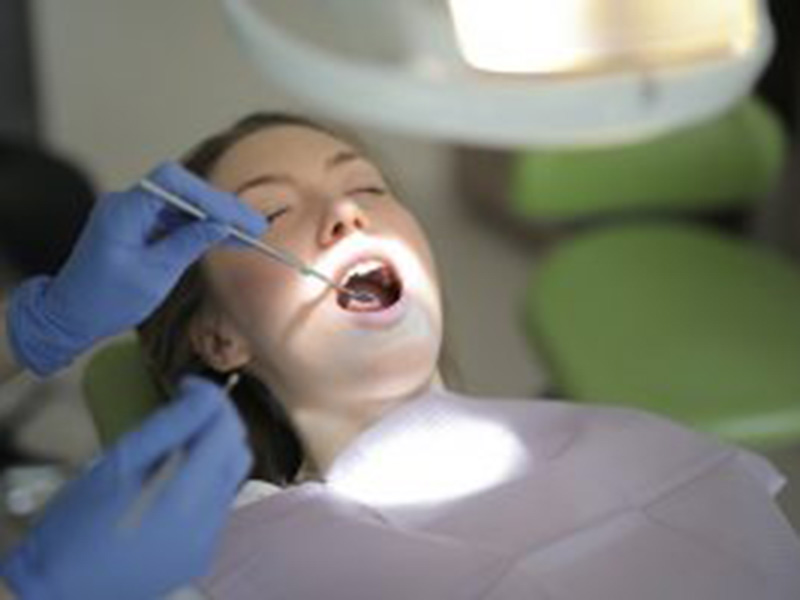Phoenix, AZ
Lower Your Risk of Oral Cancer
It is estimated that there are 50,000 new cases of oral cancer diagnosed every year within the United States. As dentists, we believe that raising awareness about oral cancer and associated symptoms can help you be prepared, and act quickly should you notice any of the signs. Early detection allows for more successful treatment rates.

What Is Oral Cancer
Oral cancer, also known as oral cavity cancer or mouth cancer, is cancer that develops on the lips, inside the mouth, throat, and esophagus.
Oral cancer is divided into two groups: cancer that forms in the oral cavity or cancer that forms in the oropharynx. The oral cavity consists of the lips, cheek, the inside of the mouth, teeth, gums, tongue, and the floor and roof of the mouth. The oropharynx refers to the middle region of the throat and includes your tonsils and the base of the tongue.
Although an individual’s cause of cancer can be unclear, certain lifestyle factors can increase your risk of developing oral cancer. These lifestyle choices include tobacco usage, alcohol consumption, sun exposure, and protection against certain diseases such as HPV, or human papillomavirus. Other risks factors can include age, sex, and genetics.
Signs of Oral Cancer
Oral cancer can occur anywhere in the mouth including the salivary glands, pharynx, larynx, and throat making it difficult to check on your own. However, common signs of oral cancer can include the following:
- Abnormal changes in your voice
- Chronic ear pain
- Chronic sore throat
- Difficulty chewing, talking, swallowing, or moving the tongue
- Feeling as though something is caught in your throat
- Flat patches of tissue that appear velvety in texture (may be different colors such as red or white)
- Numbness in the oral cavity
- Pain or tenderness in the mouth or lips
- Soft tissue that appears to be rough, thickening, or crusty
- Sores that do not heal
- Swelling in your mouth, throat, jaw, or lips
- Unusual lumps
These symptoms can apply to a variety of oral health conditions aside from oral cancer, so it is important to mention these symptoms to your dentist should you notice them. If these symptoms do not disappear within 7 to 14 days, seek immediate attention.
How Your Dentist Can Help
It can be difficult to self-examine your mouth and throat, fortunately, your dental team is trained to spot subtle signs of potential concerning conditions. During your routine appointments, your dentist conducts an oral cancer screening. These examinations are painless and quick but vital to ensuring your oral health.
Oral cancer screenings consist of checking the oral cavity–lips, cheek, lining, gums, tongue, and the floor of the mouth and roof of the mouth. We also examine the back section of the tongue, where the tongue attaches to the mouth, tonsils, and soft tissue of the throat. The last part of the screening involves feeling the jaw and neck for any abnormalities. We may also use dental x-rays to identify any risk of cancer.
During these appointments, if you’ve noticed any changes in your medical history or unusual symptoms related to your oral health, please bring them to the attention of the dentist.
Treatment
If your dentist notices anything, further testing will be done which may include imaging tests, endoscopy, and biopsy to analyze for cancerous cells. After a diagnosis is made, your dentist will work with the rest of your healthcare team to determine the best treatment options for your needs.
Treatment will depend on the location and stage of cancer as well as your overall health and personal preferences. Treatment options may include surgery, radiation treatment, and chemotherapy.
Lower Your Risk
Unfortunately, there are no proven ways to prevent cancer. However, by educating yourself on oral cancer and its warning signs you can make informed decisions on how to lower your risk of developing oral cancer.
Continue to see your dentist regularly to ensure you have the best oral health possible. We recommend patients visit the dentist every six months for a professional cleaning and check-up. Your dentist will conduct an oral cancer screening at each appointment. If you’ve noticed anything unusual since your last visit, be sure to mention it to your dentist
If you use tobacco, stop. If you don’t use tobacco, don’t start as using tobacco can expose your mouth to dangerous cancer-causing chemicals.
Maintain a good oral hygiene routine by brushing twice a day for at least two minutes a session and remembering to floss daily. Strengthen your oral health by eating a well-balanced diet full of colorful vegetables and fruits and limiting sweets.
Limit your alcohol consumption or stop drinking alcohol if possible. Excessive alcohol can irritate the cells in your mouth increasing your risk of developing mouth cancer. If you choose to drink, limit yourself to one drink a day.
Protect your lips by using a sunscreen lip balm and remembering to stand in the shade or use a wide-brimmed hat to protect you from the sun’s rays.
Studies show that certain strains of HPV, or the Human Papillomavirus, can increase your risk of developing oral cancer. Protect yourself by getting vaccinated.
As dentists, we pride ourselves on our ability to identify and treat areas of concern in your oral health, oral cancer included. Should anything be found, you can rest assured we will work with your entire healthcare team to determine the best course of treatment. By following these tips, you can lower your risk of developing oral cancer. For more information on oral cancer or to schedule an appointment, contact Biltmore Dental Center today.
